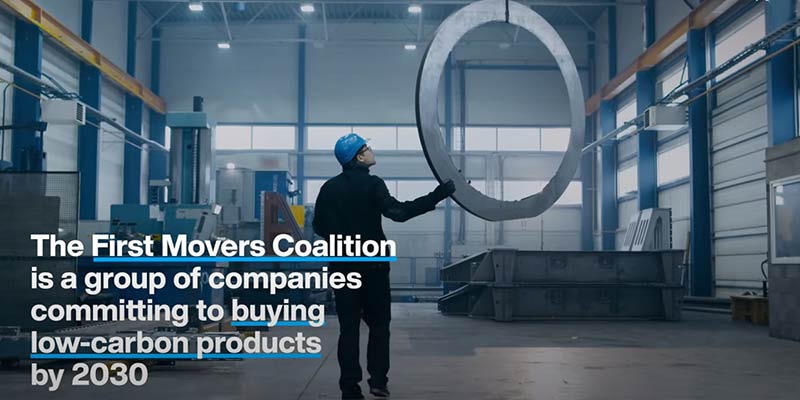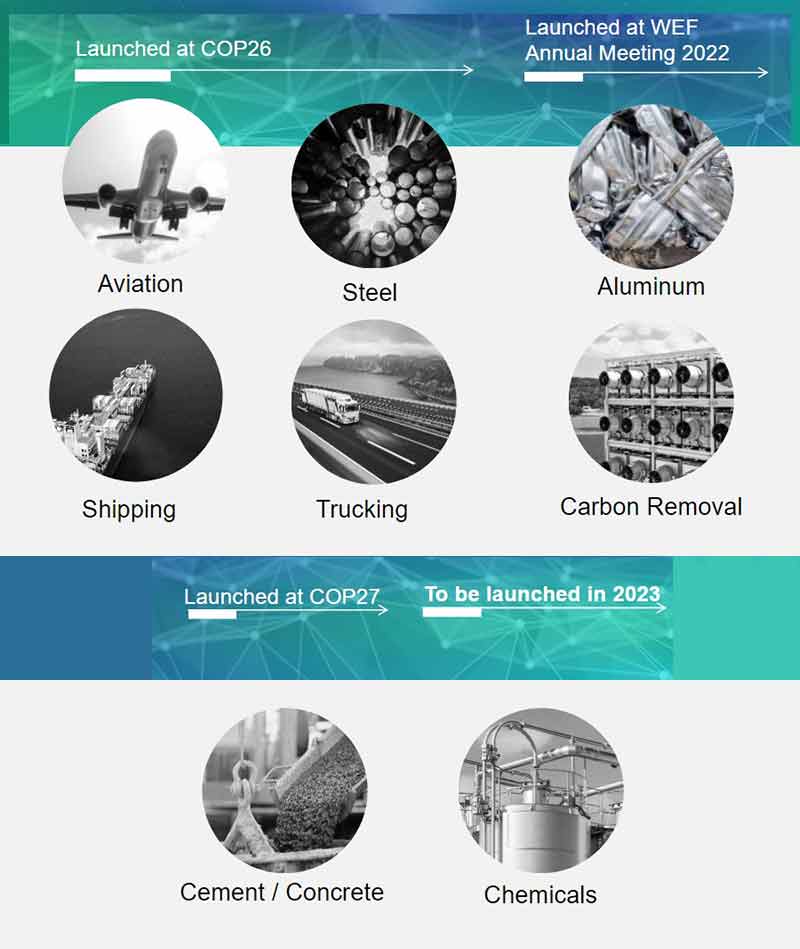- India
- Jan 20
Explainer / First Movers Coalition
India participated in the First Movers Coalition (FMC) leadership meeting of the World Economic Forum at Davos which deliberated on the need for clean energy technologies to confront the climate crisis globally.
First Movers Coalition is a global initiative aimed at decarbonising the heavy industry and long-distance transport sectors responsible for 30 per cent of global emissions.
India joined the First Movers Coalition last year.
What is the First Movers Coalition?
• At the 2021 United Nations Climate Change Conference (COP26) in November 2021, the US announced the launch of the First Movers Coalition, a new platform for companies to harness their purchasing power and supply chains to create early markets for innovative clean energy technologies that are key for tackling the climate crisis.
• The First Movers Coalition was created through a partnership between the US Special Presidential Envoy for Climate and the Office of Global Partnerships, and the World Economic Forum, in collaboration with the US Departments of Commerce and Energy.
• The International Energy Agency forecasts that roughly half of the emissions reductions to reach net-zero emissions by 2050 must come from technologies that are not currently ready for commercial markets.
• For ‘hard-to-abate’ sectors to decarbonise at the speed needed to keep the planet on a 1.5-degree pathway, they require low-carbon technologies that are not yet commercially competitive.
• The FMC is a coalition of companies using their purchasing power to create early markets for innovative clean technologies across eight hard-to-abate sectors.
• These in-scope sectors are responsible for 30 per cent of global emissions–a proportion expected to rise to over 50 per cent by mid-century without urgent progress on clean technology innovation.
• The Coalition’s members commit in advance to purchasing a proportion of the industrial materials and long-distance transportation they need from suppliers using near-zero or zero-carbon solutions, despite the premium cost.
• If enough global companies commit a certain percentage of their future purchasing to clean technologies in this decade, this will create a market tipping point that will accelerate their affordability and drive long-term, net-zero transformation across industrial value chains.
• Commitments for the first four sectors (aviation, shipping, steel and trucking) were launched in November 2021, at COP26 in Glasgow.
• The aluminum and carbon dioxide removal sectors were launched in the May 2022 World Economic Forum Annual Meeting in Davos.
• The cement & concrete sector was launched at COP27 in Sharm el-Sheikh.
• The final sector on Chemicals is planned to launch at COP28 in Dubai.
• The FMC aims to harness the purchasing power of the world’s leading companies to unlock the untapped potential of emerging technologies needed to decarbonize the world by 2050.
• The companies, whose collective market value exceeds $8 trillion across five continents, have committed $12 billion in 2030 purchase commitments for green technologies to decarbonize the hard-to-abate sectors.
• India, Denmark, Italy, Japan, Norway, Singapore, Sweden and the United Kingdom have joined the US as government partners to create early markets for clean technologies through policy measures and private sector engagement.
Manorama Yearbook app is now available on Google Play Store and iOS App Store



